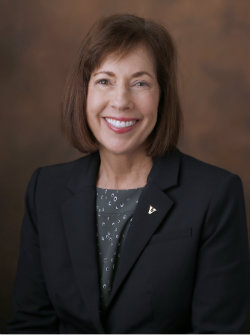Learn about the latest brain research discoveries, explore the cultural impact of 1960s music, and take a deep dive into the coffee industry as a framework for understanding globalization and market-led sustainable development. These are among the fall courses hosted by the Osher Lifelong Learning Institute at Vanderbilt, and they are open to all adults 50 and older.
Other classes will focus on relations between Latin America and the United States, the U.S. women’s movement and the U.S. Constitution. There are also offerings on film, a prominent artist’s perspective on painting portraits and meditation practices.
Vanderbilt is home to the only Tennessee lifelong learning institute endowed by the Bernard Osher Foundation. Many of the courses are taught by current and retired Vanderbilt faculty. Tuition ranges from $50 to $150 for the fall courses, each of which is priced individually and begins in October.

“In order to protect the health and safety of our Vanderbilt community, all of the fall classes will take place on Zoom,” said Norma Clippard, program director for Vanderbilt’s Osher Lifelong Learning Institute. “Osher students can also sign up for free shared interest groups, which are currently focused on books, film and nature walks.”
Registration is open for these classes:
- Uneasy Neighbors: Latin America and the United States, taught by Frank Robinson, assistant professor of history in the College of Arts and Science. He specializes in the history of Latin America and the Caribbean, with a focus on 20th-century political and social movements, nation-state formation, race and ethnicity, and Caribbean diaspora communities. The class will explore the relationships, exchanges and tensions among the people and nations of the Western Hemisphere.
- Coffee, Globalization and Sustainable Development, taught by Nora Burkey, founder and executive director of The Chain Collaborative. Topics will include the history and current state of the coffee industry as a framework for understanding the possibilities and pitfalls of globalization, international development institutions and market-led sustainability initiatives. Material to be covered includes a look into coffee’s roots in slavery and colonialism and consideration of the extent to which the global trade has changed during the 20th and 21st centuries.
- The U.S. Constitution: Foundations and Interpretations, taught by John Vile, dean and professor of political science at Middle Tennessee State University. Students will learn about American political thought through such founding documents as the Declaration of Independence, Articles of Confederation and the U.S. Constitution, and continue with the Bill of Rights and other amendments.
- Painting Portraits: My Life as an Artist, taught by Michael Shane Neal, an internationally acclaimed portrait painter. Neal will take students on a virtual tour of his studios in Nashville and New York City, and he will provide insight into his philosophy and approach to capturing likenesses on canvas.
- Our Brains — An Operator’s Manual, taught by several outstanding researchers with the interdisciplinary Vanderbilt Brain Institute. Topics will include the anatomy of the brain, stem cells and cell replacement, how researchers visualize the brain and more.
- Music in the ’60s, taught by Robert Fry, senior lecturer in music history and literature at the Blair School of Music. His class will cover a variety of topics and styles, such as Motown, the folk revival and the British invasion, and the impact of the diverse genres on the decade’s history and culture.
- Film Art: An Introduction to the Formal Elements of Film, taught by Sarah Childress, MA’05, PhD’09, curriculum consultant and instructor. Students will learn how elements such as cinematography, editing and more communicate the story details while also contributing to the expression of concepts and development of themes.
- The U.S. Women’s Movement, taught by Rory Dicker, director of the Margaret Cuninggim Women’s Center at Vanderbilt. Students will explore the resurgence of the American women’s movement during the 1960s and ’70s, which is often called the second wave of feminism. The author of A History of U.S. Feminisms, Dicker teaches classes about women and literature, feminist pedagogy and the history of American feminisms.
- Gladdening the Mind: Meditating in the Divine Abodes, taught by Gordon Peerman, DMin’90, Episcopal priest, psychotherapist and mindfulness meditation teacher. The class is open to beginning and experienced meditators. Students will focus on the “divine abodes” or meditation practices of loving-kindness, compassion, joy, equanimity and forgiveness.
OLLI at Vanderbilt is housed within the Division of Government and Community Relations. For more information, email OLLI at Vanderbilt or call 615-322-6511.